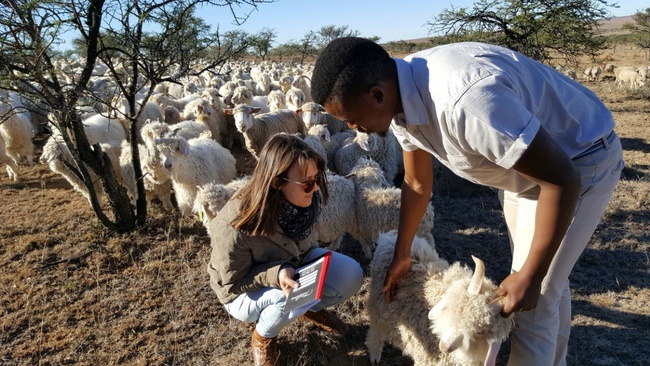South Africa –Low Emissions Development Program (SA-LED), in partnership with the World Wide Fund for Nature South Africa (WWF-SA), is providing aspiring graduates an opportunity to network and learn about careers for the environment. Recognizing the lack of awareness amongst graduates around the nature and scope of green jobs in South Africa, WWF-SA provides a bridging opportunity for graduates through its Environmental Leaders Graduate Internship Program. The internship provides budding future leaders with a platform to launch and grow their green careers, learn about experiences in the green sector and promote the economy in South Africa.
Graduates in South Africa struggle to find jobs, especially in the environmental sector and therefore SA-LED decided to partner with WWF to alleviate this problem by hiring an intern from the Environmental Leader Graduates Internship Program.
Interns from 10 universities in South Africa are employed by 18 organisations, all with an environmental focus, where they are each supervised by a dedicated and trained mentor. Through this program and mentorship, interns receive practical workplace-based experience to grow and develop their technical, professional and leadership capabilities.
SA-LED funded two career development workshops to provide an opportunity to engage in a networking and career development learning space as well as develop soft issues which arise in the work space and learning about work/life balance. These workshops expose them to what organizations are doing to support sustainable growth in South Africa as well as encouraging them to find their own niche in contributing to sustainable development.
This program was chosen because it was with an established organisation, targets graduates from the environmental sector specifically, and provides practical experience with mentor accountability which therefore allows the model to be improved every year with their feedback.
WWF continues to coordinate this program and sources funds from the government of South Africa through the National Skills Fund (R7,9 million). The program has been developed in line with the environmental and socio-economic policy framework of South Africa which has adopted a more people-centered and equitable approach towards the environment and resource management. In addition, companies that operate in South Africa contribute to this fund via the skills development levy through a pay roll tax. WWF also sources funds for the program from other sources such as private sectors and donors.
A challenge is that although South Africa's economy is growing, is not growing fast enough to absorb new graduates. What the program hopes to achieve is equipping graduates with real-life work experiences where they can work on specific projects, learn new skills and develop themselves so that they can develop the sector as well. Therefore, despite there not being jobs, they can be the creators of new jobs through exposure of the training program and they can become entrepreneurs and innovators in the green economy. This then continues to promotes the economy in South Africa and creates more jobs grows the green economy as well.
SA-LED is committed to promoting green growth in South Africa and this includes providing aspiring young graduates studying in the field of sciences an opportunity to grow their careers and learn how to protect the environment in which we live. Not only does this help grow the green economy in South Africa, aspiring graduates learn practical ways to promote sustainability in the careers they have chosen to pursue.
The graduates come from a diversity of fields coming into the profession such as Ecologists, Taxonomists, Environmental Economists, Green Urban and Regional Planners and Environmental Engineers, to name but a few, and preparing the labor field with the demand of new work force. This in turn broadens skills in the environment sector specifically within South Africa.
A lot of material, especially for the mentors of the graduates, have been developed to equip them with necessary skills. Mentors were sensitized to the soft issues that arise in the works place so it makes people aware of social dynamics at play in the work space, soft issues such as managing conflict, being more assertive and working with diverse people. The training material and guides can also be used in other internship or graduate placement programs. Representation in the sector is around African and previously disadvantaged students, so this can also be used in other programs targeting marginalized groups.
World Wildlife Fund- South Africa
National Skills Fund
Department of Higher Education and Training
